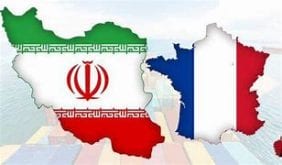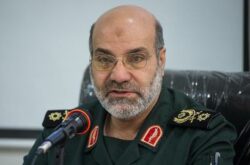CHRI – At least 11 men have been sentenced to death in the Islamic Republic, and 24 others are facing charges that could carry the death penalty, raising fears of more executions following the recent hangings of two young men for their participation in the protests that have swept Iran.
“Lynching committees masquerading as courts are threatening people with death to instill fear in protesters and crush the country’s freedom movement,” said Hadi Ghaemi, executive director of the Center for Human Rights in Iran (CHRI).
“Governments around the world need to communicate to the Iranian authorities that they must immediately end the use of the death penalty as a tool of political repression,” he added, “or risk increasingly severe diplomatic isolation and economic consequences.”
“Young men in their 20s are being hanged after show trials, and more are being sentenced each day in Iran—the international community must act with the utmost urgency,” Ghaemi said.
All of the 11 individuals who are currently on death row were convicted after sham trials in which they were denied due process, including a lawyer of their choice, according to research by CHRI.
The two young men who were executed, Mohsen Shekari and Majideza Rahnavard, both 23, were prosecuted and hanged within a matter of days, on December 8 and December 12 respectively, without any semblance of due process or fair trial rights.
CHRI has confirmed that at least 24 other men, most in their 20s, are facing charges that can carry the death penalty, including four individuals whose cases are described below.
Mohammad Ahmadvand Shahvandi, 25, a student at the Medical Sciences University in Shiraz, Fars province, has told a family member that he has been sentenced to death, although the sentence has not been officially confirmed by the court.
Held in Adelabad Prison since November 18, 2022, the so-called “evidence” being used against Shahvandi is membership in a WhatsApp group.
“When Mohammad was detained, his older brother, Shahab, got into an argument with [state] agents about why they were arresting Mohammad,” a person close to Shahvandi told CHRI on condition of anonymity for security reasons. “That night, they arrested both of them.”
“Their parents have passed away and they live a very difficult life with two sisters,” added the source. “One of their sisters was able to visit Shahab and Mohammad in prison and Mohammad told her that he had been sentenced to death.”
The only “evidence” submitted in court was the allegation that Mohammad had created a WhatsApp group where he and his classmates discussed current issues, the source said.
“They charged him with forming a group with the intention to overthrow the state,” added the source. “We don’t even know how many people were on this WhatsApp group, but for this strange reason they have sentenced him to death.”
“His brother… wasn’t even a member of this WhatsApp group but because he objected to his brother’s arrest, they said that he, too, is facing a serious charge but his trial hasn’t started yet,” said the source.
The manufactured and unsubstantiated charges being used to justify the recent death sentences in Iran have been criticized by religious scholars in Qom, the country’s Shia religious center.
“Yes, if the mohareb [someone who wages war] kills someone, his punishment is death, but if he only makes threats and creates fear, the punishment is not death, even if he’s considered a mohareb,” said Ayatollah Morteza Moghtadaie, former Supreme Court Chief Justice and current member of the Qom Seminary Theologians Association, in an interview with the Iranian Labor News Agency (ILNA) on December 11.
Another member of the Qom Seminary Theologians Association, Ayatollah Mohammadali Ayyazi, told ILNA on December 11,“If someone has the right to protest against the current conditions, then agents shouldn’t stop him, and if wants to defend his rights, we shouldn’t call his actions moharebeh [enmity with God].”
Parham Parvari, a 26-year-old national swimming champion from the city of Saqqez, Kurdistan province, had just started working for a private engineering firm in Tehran when he was arbitrarily arrested by state security agents in early November. He is currently being held in Evin Prison.
“That night, people were protesting by turning off their cars in the street,” a person close to Parham, speaking on the condition of anonymity for security purposes, told CHRI. “The special forces went into action and started to smash the cars. Some were able to escape but Parham was sitting in his car and the agents dragged him out and started beating him. They took him away only because his car’s license plates are from Saqqez.
Islamic Republic forces have been violently repressing ongoing protests in Saqqez since mid-September when they broke out there and across the nation following the death in state custody of 22-year-old Mahsa Amini, whose Kurdish name was Jina and who was from Saqqez.
“A few days later Parham’s family heard about his arrest when he made a two-minute phone call to say he’s in Evin Prison,” said the source. “His trial was on November 9 without the presence of his lawyer. Parham was charged with moharebeh, but he didn’t even know what that meant.”
“At the start of the trial the judge told him, “We should hang you,’” added the source.
On November 13, Parham’s father, Mazaher Parvari, posted a video online calling on human rights organizations to save his son.
CHRI has learned that Parham Parvari has made several attempts to obtain an independent lawyer but has been told he can only be represented by state-approved lawyers, which effectively cooperate with the prosecution.
Milad Armoon, whose age is unknown, is another man facing charges that could carry the death penalty.
He was accused, along with three other individuals, Behrad Hesari, Nastooh Nikkhah and Mohammad Pasandian, of being connected to the killing of a cleric who was a member of the Basij paramilitary, in the Ekbatan neighborhood of Tehran.
On November 3, Iran’s state broadcaster, the Islamic Republic Iran Broadcasting (IRIB), aired an interview with Armoon, who—while blindfolded—repeatedly insisted he was only a bystander and did not kill anyone.
Prior to the broadcast, officials had tried to gather video footage from nearby security cameras, CHRI has learned.
A resident of Ekbatan told CHRI, “It looks like they have no proof or evidence to charge them. The authorities were angry at me and other shopkeepers for not filming the incident.”
Amir Reza Nasr-Azadani, 26, a well-known soccer player and member of the Iran Javan club in the Persian Gulf port city of Bushehr, is also reportedly facing charges that could carry the death penalty, yet little is known about his case.
His family has been under intense pressure not to speak with the media and were prohibited from hiring an independent lawyer, CHRI has learned.
He was arrested on November 18 in Isfahan and accused of being connected to the murder of a police officer and two Basij members.
Nasr-Azadani has received support from Iranian and international soccer stars.
“Let us be the voice of Amir Nasr-Azadani, one of the victims of this child-killing regime,” tweeted Iranian football star Ali Karimi. “Do not execute Amir.”
https://www.facebook.com/watch/?v=529824135739921
 Shabtabnews In this dark night, I have lost my way – Arise from a corner, oh you the star of guidance.
Shabtabnews In this dark night, I have lost my way – Arise from a corner, oh you the star of guidance.



